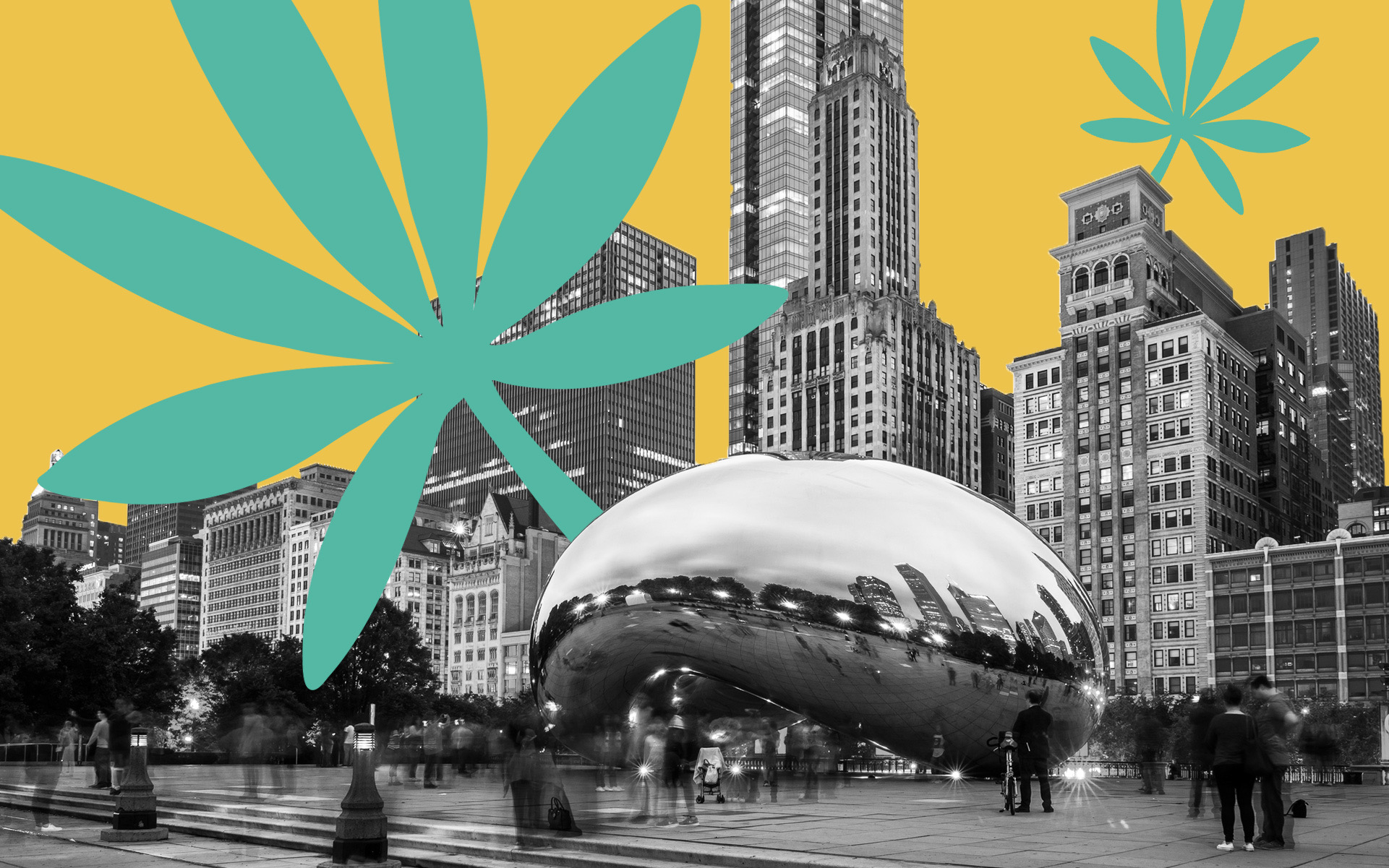Except for a few lucky ones, Illinois’ cannabis license distribution has been a disaster. So, other than the entertainment value of the state’s self-immolation, why should anyone outside of the state care? I mean, every other state will have its own process and they don’t have the same kind of problems, right?
Nuh-uh. I’m here to tell you that Illinois’ cannabis problems are just a portent of what’s to come for every big state in the Union. The Land of Lincoln is merely grappling with a problem everyone will have to deal with in the future – and that boogie man is the underground illegal cannabis industry.
Whether they intended to or not, Illinois’ policymakers are directly addressing the most significant competitive force working against the cannabis industry. While pot companies are enjoying an initial boom right now, there’s a strong case to be made that today’s legal cannabis buyers are merely the ones most willing to pay a premium, while the illegal market continues to thrive, maybe even grow, if the anecdotes I hear are correct.
That suggests there’s a ceiling for legal cannabis buyers, and we really don’t know if the illegal market will shrink, stay the same, or get bigger. The best analysis we can get, using data from national drug use surveys, suggests that America’s illegal cannabis market is still two and a half times bigger than the legal market. Looking at it in terms of economics, the idea that the illegal market will get bigger seems like a pretty good bet: More social acceptability, less criminal prosecution, and lower prices than legal dispensaries all add up to a pretty good setup for your neighborhood weed man.
The illegal market is sophisticated. To begin with, it always offers delivery. I’ve seen Google Doc pages with a long lists of strains, gummies, pre-rolls, and tinctures with their own branding. You submit your order through an encrypted chat app, and then pay in cash or sometimes Bitcoin. Then it shows up at your front door in an hour or so. I know people who have gone to underground, pop-up dispensaries, with wide selections and deli-style flower selection.
While they still exist, most dealers are not selling baggies of pot on a corner in a hoodie. The underground market is fluid, consumer-savvy, and ready to serve you. It’s inevitable that unless cannabis laws address the underground market, legal cannabis companies will not only reach a ceiling of customers, but at some point in the near future, begin to directly compete with underground dealers.
But still, among larger cannabis companies and many policymakers there is an idea that legal cannabis adoption will be just like the late 1990’s shift from downloading music on Napster to using iTunes. Back then, Napster’s underground experience, while free, had unreliable song quality and carried a constant threat of your internet provider shutting you down, while iTunes gave you great quality downloads with knowledge you weren’t breaking the law for a mere 99-cents a song. Eventually, between the pressure of lawsuits against pirates uploading to Napster and the low pricing of Apple’s music service, iTunes came to dominate and illegal uploads faded into the dark web.Wait until next whenever… Illinois suspends the issuing of up to 75 additional dispensary licenses
But unlike cannabis, music production and distribution has always been controlled by a small group of big companies. Cannabis, on the other hand, has an uncountable number of producers and maybe tens of thousands of unidentified distributors with little regard or faith in the American legal system.
Through decades of suppression by the justice system, the illegal cannabis market has become interwoven with largely poor, Black, and Latino communities. When you’re poor, legality is secondary to survival, and so for many Americans, cannabis sales and consumption is connected to just getting by. Similarly for consumers, the idea that you should give your money to a large company, just so you can get high, seems like a crazy idea – even Anti-American.
Acknowledging that allowing large companies to be the only ones in the cannabis market will only foster resentment and fuel the Illegal market, Illinois is attempting to create a place for Black and Latino entrepreneurs in the legal market. Wrongly, this has been called “social equity”. Really, it’s an attempt to dismantle the underground market. In theory, giving underground operators the tools to succeed openly, the underground market becomes less appealing.
But this Adam Smithian vision ignores a number of big barriers, the first being that the regulatory cost of the legal market is significant: People I know buying in the illegal markets in Illinois, Michigan, and Missouri are consistently paying 40% less than dispensary prices, suggesting that, like gas station managers, street dealers are paying close attention to their competitors’ prices, and constantly adjusting to keep their price advantage.
If states are interested in dismantling the underground market, they will ultimately have to figure out a way to reduce regulatory costs. That means allowing outdoor grows and some sales channels with caveat emptor adult-use sales that lack seed-to-sale tracking, testing, or expensive dispensary vaults. So far, Michigan’s grey market caregiver system – which is meant to be restricted to cannabis medical patients but seems to be leaking into illegal adult-use sales – seems to be that caveat emptor solution.
The second, more thorny problem is that many illegal market operators have a few dings on their record they’re trying to evade. It could be ten years of unpaid parking tickets. It could be ten years of unpaid taxes. It could be ten years of probation evasion – or much worse. Luring these people out from the shadows will require powerful profit motives, an offer that’s just not on the table when the biggest social equity enterprise Illinois has to offer is a craft grow license that might start making money three years from its launch.
Still, Illinois is trying to solve the underground cannabis problem at a scale no other state has attempted. Often, trying to solve big problems is messy. What a mess Illinois has found.

